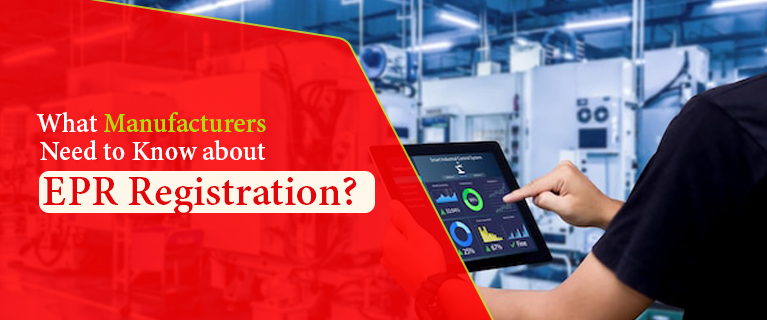How To Hire An EPR Registration Consultant?
Hiring an EPR (Extended Producer Responsibility) registration consultant can be a strategic move for businesses looking to navigate the complexities of EPR compliance effectively. EPR laws are becoming more prevalent globally as environmental concerns rise, and these regulations can have a significant impact on businesses. Here's a step-by-step guide on how to hire an EPR registration consultant:
1. Identify Your Needs:
- Determine the specific EPR regulations that apply to your industry and products.
- Assess your company's current EPR compliance status and identify gaps or areas of improvement.
- Clearly define your goals and expectations from the EPR registration consultant. Are you looking for assistance with initial registration, ongoing compliance, reporting, or all of these?
2. Research Potential Consultants:
- Start by conducting thorough research online to identify EPR registration consultants with expertise in your industry and geographical area.
- Consider asking for recommendations from industry associations, business peers, or regulatory agencies that deal with EPR compliance.
- Consider asking for recommendations from industry associations, business peers, or regulatory agencies that deal with EPR compliance.- Create a list of potential consultants or consulting firms.
3. Check Qualifications and Experience:
- Review the qualifications, certifications, and experience of each consultant or consulting firm on your list.
- Look for consultants who have a strong understanding of EPR regulations in your region or target markets.
- Check if they have a successful track record of assisting businesses with EPR registration and compliance.
4. Evaluate References:
- Ask for references from past or current clients who have worked with the consultant.
- Contact these references to inquire about their experience, the consultant's effectiveness, and their overall satisfaction.
5. Interview Potential Consultants:
- Arrange interviews or meetings with the selected consultants.
- During the interviews, discuss your specific needs, expectations, and the scope of work.
- Ask about their approach to EPR registration, compliance strategies, and any technology or software they use.
6. Discuss Fees and Contracts:
- Request detailed proposals from the consultants that outline the scope of work, timelines, and estimated costs.
- Be clear about your budget constraints and negotiate fees accordingly.
- Review the proposed contracts carefully, ensuring that they include all agreed-upon services and deliverables.
7. Consider Industry Knowledge:
Choose a consultant who not only understands EPR regulations but also has experience in your specific industry. Industry-specific knowledge can be invaluable in ensuring compliance.
8. Evaluate Communication and Responsiveness:
Assess the consultant's communication skills and responsiveness. Effective communication is crucial for a successful partnership.
9. Confirm Data Security Measures:
If the consultant will be handling sensitive business data related to EPR compliance, inquire about their data security measures and compliance with data protection laws.
10. Ensure Ongoing Support:
- Discuss whether the consultant offers ongoing support for EPR compliance beyond initial registration.
- Ensure that they can adapt to changes in EPR regulations and provide timely updates.
11. Sign a Contract:
Once you've selected a consultant, sign a clear and comprehensive contract that outlines all the terms, responsibilities, and deliverables.
12. Monitor Progress:
Stay actively involved in the EPR registration and compliance process, regularly reviewing progress and reports provided by the consultant.
13. Provide Necessary Resources:
Ensure that your organization provides the necessary resources and data required by the consultant to fulfill their responsibilities effectively.
14. Review and Adjust:
Regularly review the consultant's performance and the effectiveness of your EPR compliance efforts. Make adjustments as needed.
Read Also This - The Role of EPR Consultants in Building a Circular EconomyHiring an EPR registration consultant can streamline the compliance process, reduce the risk of non-compliance penalties, and help your business meet its environmental responsibilities effectively. By following these steps and conducting thorough due diligence, you can select a consultant who aligns with your business objectives and regulatory requirements.




Comments
Post a Comment